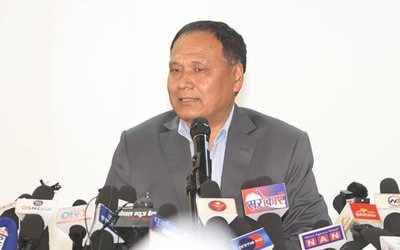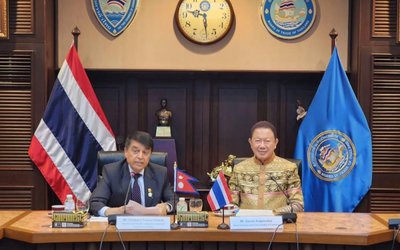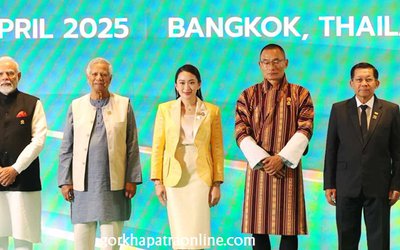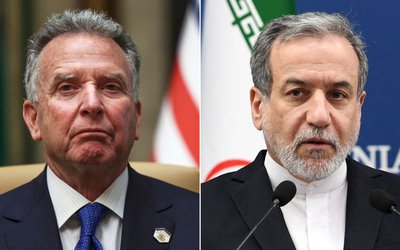More on Economy





Norms once established resist change. This seems true for an oriental society like ours which is more than necessarily circumscribed by inertia and slackness. It takes time for any new notion like the democratic republic to flourish in Nepal.
Some puritans argue that people and planet would be better off without politics and profit. But the progress of the modern world is not possible without them. Every aspect of society is affected by politics of that country. Political science tells us that a country’s prosperity depends to a great degree on the quality of its neighbourhood. But where is the spillover, and after that, catchup effect for Nepal from colossal growth in its bordering countries, China and India? The inherent cultural, social, political and economical characteristics may be upsetting the benefits on Nepal’s growth path. Even Bihar is growing rapidly:10-12% per annum and Tibetan Plateau of China is no longer far from development. The urgent need is for the Nepalese policy makers to decide what sort of economic policy the country has to follow in tune with its political setup.
It is well known that there are basically two types of economic system-capitalism and communism. But it will be pragmatic not to mention about communism any more since it can be regarded currently as obsolete.
As argued by its followers, capitalism is not a single static system, but, undergoes constant evolution. The history of western capitalism can be divided into three stages: mercantile, industrial, and, corporate.
Theoretically, means of production are owned and services provided by private entities in a capitalist economy, nonetheless, the modern so called capitalist countries are also engaging in some kind of interventionist policies in market activities and providing many services. In analysing any mode of production, class relations are paramount. Classes are groups of people in similar economic circumstances. Analytically most important economic groupings are those which categorize people according to how their livelihood is earned. According to Marxist perspective, there are basically two classes viz: profit earners and wage earners that is to say capitalist class and worker class-the proletariat.
Basically, critics are equivocal on terming Karl Marx as more of a political philosopher or a structural economist per se. But he might have been correct in his historicity that ‘every particular social system must destroy itself, simply because it must create forces which produce next historical period’.
In the last century, imperialism was destroyed in continental Europe and replaced by fascism and communism and latter replaced by democratic political system. If the present economic crisis, due to global recession, spells the end of capitalism, it would appear that capitalism, in its Laissez-fare form, especially, had a short life. But as stated earlier, the room for improvement in capitalism is always there and the followers of capitalism never hesitate to inherit Keynesian prescriptions sometimes deviating from neo-liberal approach.
By the same token, socialists too have to rethink their thought and need to correct their past mistakes. In this age of globalisation and new economic world order, socialism too should be costumed and tailored.
In Nepal, no political hope is upbeat because the country looks like moving towards becoming a failed state. Politics is in a bad shape and is likely to get worse in the coming months. The job of the government as well as that of the opposition is shifting to foreign envoys. At present, in the process of constitution making, several questions arise on the issue of federalism in Nepal. First of all, there must be national debate on the following questions- What is federalism? Why do we need it? How many federal states do we need? Politically and economically, is federalism viable or not? Basically we need to look at the causes and consequences of federalism.
Nepal is now increasingly getting familiar with the classic slogan of the leftist ideology, that is, differences of wealth and power accompany inequalities of access to education, health, welfare and employment. This is the main cause for the outdated ultra leftist thought to set up a laboratory in the country. The main components of this experiment are not any chemicals in the test tube, but the people of the country itself! Controlled experiments with economies and people are possible, as in the case of natural science.
After its restoration in 1990, democracy was seen as a tool or means for achieving the end which is to correct the social imbalances of the past created by then Panchayat era. But the political parties deviated from their respected path. The political problem with Nepal is that those hardworking leaders who toppled an old regime neither knew the complexities of contemporary trends of developmental ideas, and, what to do further, nor had the alternatives for globalization and capitalistic economic strategies.The Nepali Congress, primarily, a centrist party, having democratic socialism as its policy, lost its way and moved towards centre right. CPN (UML) changed its ideology from guerrilla warfare towards so called people’s multi party democracy ( Janata ko bahudaliya janabad). The current largest party in the constitutional assembly, UCPN-Maoist, is still following the New Democracy as its minimum goal for the time being and achieving communism as its long term strategy. For realization of this ideology, it even engaged in a long term people’s war from 1996 to 2006. But, one day, the Maoists too have to give up this discredited political structure as their objective. Similarly regarding federalism, Maoists are in a great dilemma. They are the principal initiator of federalism based on ethnicity and castes rather than depending upon economic feasibility, geographical location and other factors of undivided sovereign Nepal. Needless to say, whether the so-called self-branded true followers of Karl Marx are following class struggle or caste struggle! This is a great paradox on the part of Maoists, but by now, they must have realised that defensive battle is won by violence but the offensive one is won by ideas, which is contrary to their hypothesis.
It will be realistic for the big three parties to follow a definite ideology according to their conduct not according to their slogans. That means that NC should follow liberal democracy, UML– people’s democracy and Maoists – new democracy. But these are not pragmatic and sustainable due to internal and external circumstances. Since the need of the hour is to forge national consensus on all fronts, the best alternative for all three is to follow a common course, which is social democracy with the realistic roles for both the state and market. This can be their combined mean to achieve in making an equitable and just society whatever may be written as the guiding principles in their manifesto or no matter what they have ended up with when they are in the government. If these big three can unite, the past has shown that they had abolished monarchy, when they did not, they could not sack an army chief!
The need of the present moment is to narrow the ideological and behavioural gap between these three parties for making the constitution drafting a success in the short run and ultimately transformation of Nepal into a developed and welfare nation state in the long term. In a nutshell, economically, socialist paradigm, and politically, democratic norms, will be good for new Nepal to follow. So, get the politics right in order to achieve economic development.
Ph.d candidate
Department of Economics and Finance
School of Social Science
Brunel University West London U.
Tanka.Niraula@brunel.ac.uk






